
Shapley–Sawyer Concentration Class
Encyclopedia
The Shapley–Sawyer Concentration Class is a classification system on a scale of one to twelve using Roman numerals
for globular cluster
s according to their concentration. The most highly concentrated clusters such as M75
are classified as Class I, with successively diminishing concentrations ranging to Class XII, such as Palomar 12
. (The class is sometimes given with numbers [Class 1–12] rather than with Roman numerals.)
and Helen Sawyer Hogg
began categorizing clusters according to the degree of concentration the system has toward the core using this scale. This became known as the Shapley–Sawyer Concentration Class.
Roman numerals
The numeral system of ancient Rome, or Roman numerals, uses combinations of letters from the Latin alphabet to signify values. The numbers 1 to 10 can be expressed in Roman numerals as:...
for globular cluster
Globular cluster
A globular cluster is a spherical collection of stars that orbits a galactic core as a satellite. Globular clusters are very tightly bound by gravity, which gives them their spherical shapes and relatively high stellar densities toward their centers. The name of this category of star cluster is...
s according to their concentration. The most highly concentrated clusters such as M75
Messier 75
Messier 75 is a globular cluster in the constellation Sagittarius. It was discovered by Pierre Méchain in 1780 and included in Charles Messier's catalog of comet-like objects that same year....
are classified as Class I, with successively diminishing concentrations ranging to Class XII, such as Palomar 12
Palomar 12
Palomar 12 is a globular cluster in the constellation Capricornus that belongs to the halo of the Milky Way galaxy. First discovered on the Palomar Survey Sky plates by Robert G. Harrington and Fritz Zwicky,...
. (The class is sometimes given with numbers [Class 1–12] rather than with Roman numerals.)
History
From 1927–1929, Harlow ShapleyHarlow Shapley
Harlow Shapley was an American astronomer.-Career:He was born on a farm in Nashville, Missouri, and dropped out of school with only the equivalent of a fifth-grade education...
and Helen Sawyer Hogg
Helen Sawyer Hogg
Helen Battles Sawyer Hogg, CC was a prolific astronomer noted for her research into globular clusters...
began categorizing clusters according to the degree of concentration the system has toward the core using this scale. This became known as the Shapley–Sawyer Concentration Class.
Classes
| Class | Description | Example |
|---|---|---|
| High concentration toward the center | 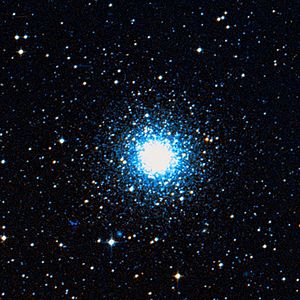 |
|
| Dense central condensation | 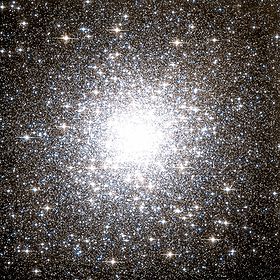 |
|
| Strong inner core of stars | 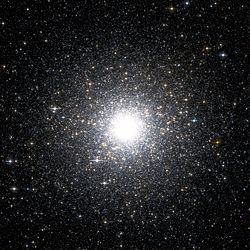 |
|
| Intermediate rich concentrations | ||
| Intermediate concentrations | ||
| Intermediate | 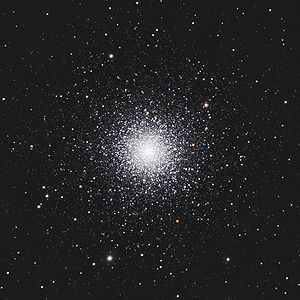 |
|
| Intermediate | 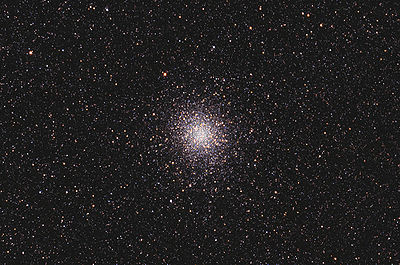 |
|
| Rather loosely concentrated towards the center | 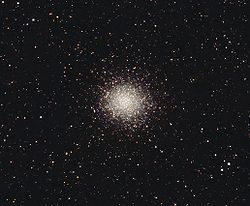 |
|
| Loose towards the center | 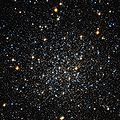 |
|
| Loose | 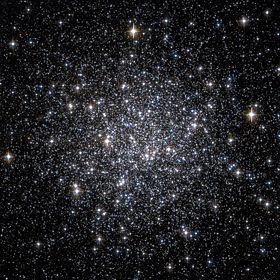 |
|
| Very loose towards the center | 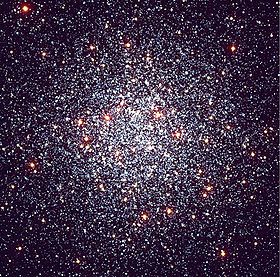 |
|
| Almost no concentration towards the center | 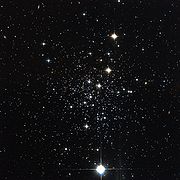 |
|

